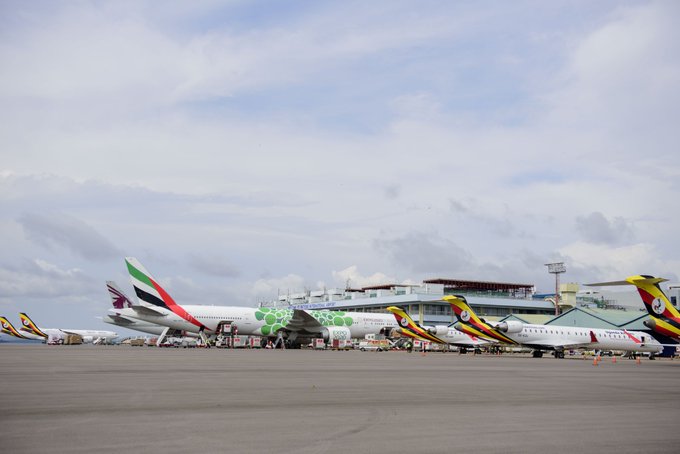Entebbe — Entebbe International Airport continues registering robust growth in passenger and cargo traffic, highlighting Uganda’s steady post-pandemic aviation recovery and growing role as a regional transport hub.
According to figures released by the Uganda Civil Aviation Authority (UCAA), a total of 185,466 international passengers passed through Entebbe Airport in April 2025, up from 164,705 in the same month last year. This included 93,194 arrivals and 92,272 departures, averaging 6,182 passengers per day — a marked increase from the 5,490 daily average recorded in April 2024.
“These figures reflect a consistent rebound and growing confidence in Uganda’s aviation sector,” said Vianney Mpungu Luggya, UCAA spokesperson. “We are seeing more travellers using Entebbe for both business and tourism, as well as continued recovery in regional and international air connectivity.”

Cargo operations have also seen notable improvements. In April 2025, Entebbe handled a total of 6,098 metric tons of cargo, comprised of 2,088 metric tons of imports and 4,010 metric tons of exports. This is a rise from 5,721 metric tons handled in April 2024, showing increased reliance on the airport for Uganda’s import-export trade.
ICAO–Uganda Partnership to Bolster Aviation Training and Safety Standards
In a related development, Uganda’s aviation sector took a significant step forward with the signing of a Management Service Agreement (MSA) between UCAA and the International Civil Aviation Organisation (ICAO). The agreement, signed on May 27, 2025, during the AFI Aviation Symposium in Zimbabwe, aims to establish a comprehensive training needs analysis and capacity development plan for the period 2026–2028.
The MSA was signed by Mr. Fred K. Bamwesigye, Director General of the Uganda Civil Aviation Authority, and Mr. Juan Carlos Salazar, ICAO Secretary General. The initiative will be implemented through ICAO’s Global Aviation Training (GAT) framework.

“This partnership will support the establishment of a specialised unit within UCAA to assess training gaps, align staff skills with international aviation standards, and boost regulatory oversight, air navigation, and operations at Entebbe and 13 other national aerodromes,” UCAA said in a statement.
The year-long project is expected to improve human capital development and operational readiness while enhancing Uganda’s compliance with ICAO protocols and Sustainable Development Goals (SDGs) related to industry innovation, infrastructure, and safety.
A Vision of Excellence in Aviation

As air traffic through Entebbe continues to rise, the combined efforts in infrastructure development, personnel training, and international cooperation signal Uganda’s ambition to become a regional aviation hub. With the ICAO partnership reinforcing a roadmap for world-class training and regulatory systems, the future of Uganda’s skies appears increasingly promising.
“We are committed to aviation excellence and building a resilient, skilled workforce that meets global standards,” said Bamwesigye. “This is essential for both passenger safety and the broader economic impact aviation has on trade, tourism, and connectivity.”











